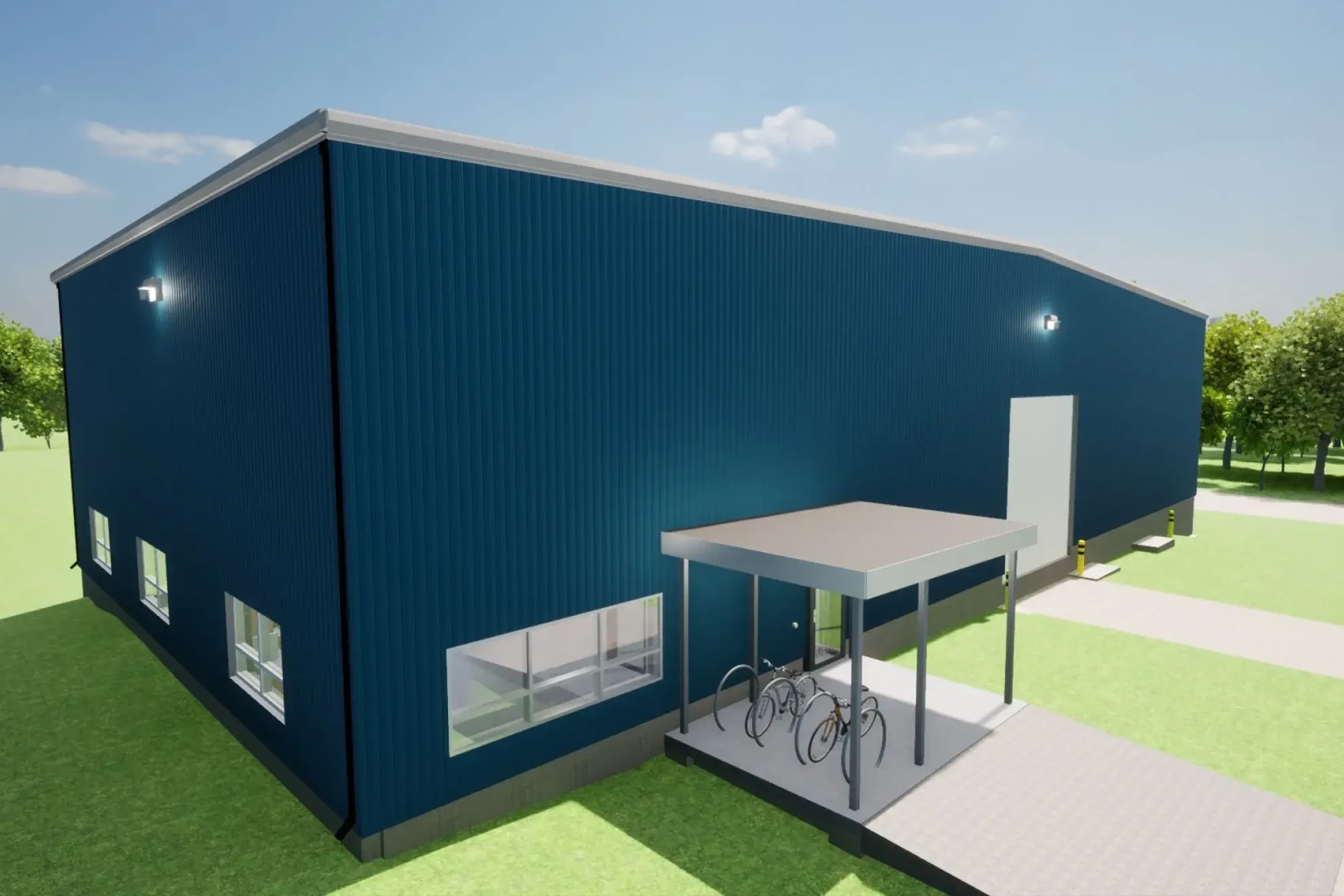
Construction has begun on a new facility specializing in large-scale testing on civil engineering infrastructure. The Climate Adaptive infraStructure Testing and Longevity Evaluation (CASTLE) Innovation Cluster laboratory will be located on West Campus, off Johnson Street and will complement the existing Coastal Engineering Lab (950 Johnson Street). Hoarding has been erected at the construction site in preparation for excavation.
The new one-floor 670-square-meter structure will include the world’s only large cyclic triaxial, and a geotechnical centrifuge. The large cyclic triaxial will be used to test mechanical properties of soil and rock samples. The centrifuge will be used to conduct accelerated-gravity studies of climate cycles, including being able to speed up time-dependant processes, and will aim to examine failure mechanisms for civil engineering structures as well as soil-structure interactions. The ability to simulate the effects of gravitational forces will allow engineers to optimize designs, improve structural resilience, and develop more accurate predictive models.
Operations at CASTLE laboratory will involve collaboration between the Royal Military College and Queen’s GeoEngineering and will help position Kingston as a destination for world-class academic and research engineering programs.
The CASTLE laboratory project was made possible through funding from the Canada Foundation for Innovation, Ontario Ministry of Colleges and Universities, and Queen’s University.
CASTLE laboratory is scheduled for completion in February 2026.
This article was originally published in the Queen’s Gazette.